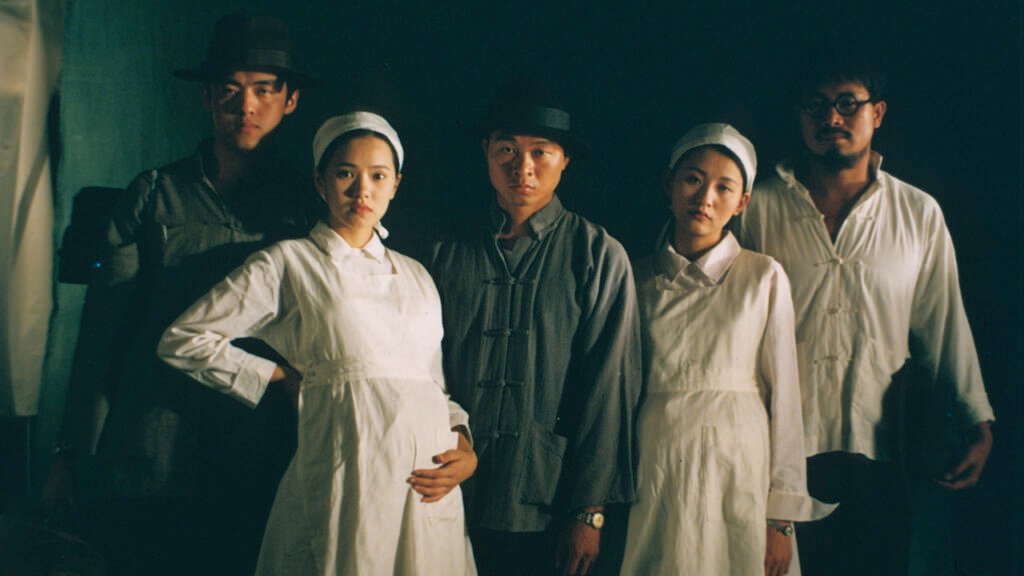
The film is based off the autobiography by Chiang Bi-yu. The complex script takes off on three distinct yet parallel timelines. In the current day Taipei, a young actress Ching Liang is about to shoot for a film (that shares the same name as the real movie) in which she portrays a revolutionary Chiang Bi-yu who went over to mainland China in the 40s to battle Japanese occupation and returned home just to get executed by the government alongside hundreds others for being a communist. The life of the abovementioned forms the second axis. During the filming process, Ching gets faxes of pages from her diary which seems to have been stolen, and the unknown sender keeps sending in things from her past where she used to be a drug addicted mistress to a small time mobster Ah Wei, who worked in a bar at that time. Her life then forms the second axis of the movie.
Evidently, the best part of the movie is the way Hou, together with the outstanding editing of Liao Ching Sung, intertwines and brings together all three different timelines while looking quite enjoyable to watch.
His directorial style creates a story that not only requires the complete focus of the audience but also manages to keep them engaged throughout its runtime of 108 minutes. Likewise, the distinction in the imagery; the historical aspect being rendered in monochrome; the recent history that is set in and around the apartment, and the close ups, and the modern and more literature-esque period, is effective too, although the one part is undoubtedly the weakest of the three. Chen Huai-en’s work is remarkable in each of these three styles because he seamlessly employs three very different artistic approaches.
It is also worth mentioning how the diaries make the whole story quite natural and at the same time exaggerates the overly mentioned feelings, that this is in fact a book that has been turned into a film, in a similar manner to other works including Ann Hui’s ‘The Golden Era,’ though Hou’s work is far superior. One more proof of Hou’s success is revealed in this case by the fact that the three axes are of different genres in essence, although they are still seemingly drama-centric. To Daniel Li Hsiao’s narrative, Bi-yu married an historical drama, Ching Liang past was an erotic drama, and her present is an existential drama with forays into a film about a play within a film.
In parallel, Taiwanese movies and their history are also a subplot of the movie. While doing so, he juxtaposes Ching Liang’s self-destructive tendencies with the social turmoil that the nation suffers from at different epochs, while her internal struggle as she fights against her disloyalty, reflects Taiwan’s betrayal of its citizens during the White Terror.
Well, at last, Liang, and even Taiwan to a degree, has to come to terms with its history if peace is to be a possibility, this being the totalizing remark Hou wanted to make with the film.
Annie Shizuka Inoh as Liang Ching/Chiang Bi-yu had the rather difficult role of portraying essentially three different parts, all of which are presented in adequate fashion to say the least. Fittingly, a few of her scenes in the club, the sexy one, along with her violent altercation with the lover, sister and several others, include the best moments in the movie. Jack Kao plays Ah Wei, a petty criminal who loves Liang Ching with all his heart convincingly
“Good Men, Good Women” ends on a note of What’s more Taiwan’s past is certainly achieved through Ching Liang’s story within the broader context of recovering the history of Taiwan. The direction of Hsiao-hsien Hou and the actors’ great performances epitomize the Taiwanese nation in a different work of Chan, which is also skillfully multifaceted.
For more movies like “Good Men, Good Women” visit on solarmovie.







